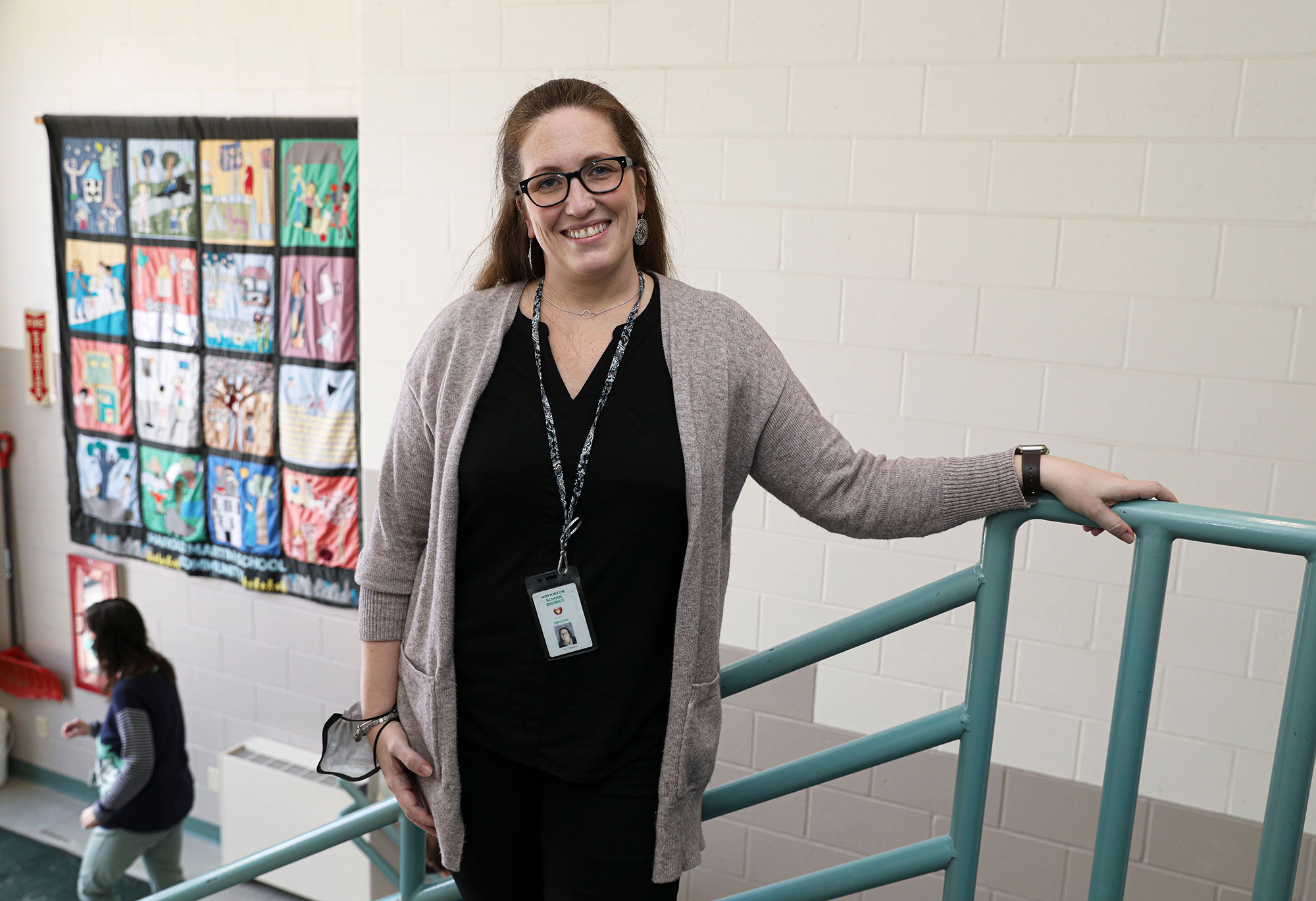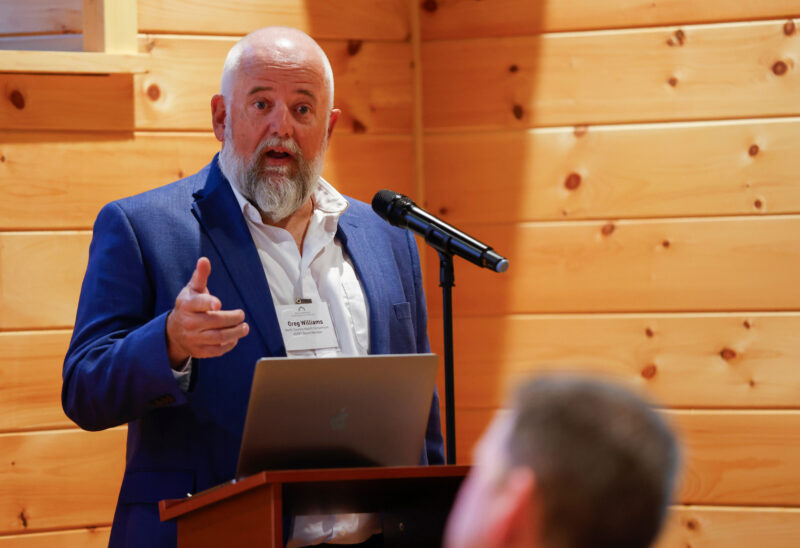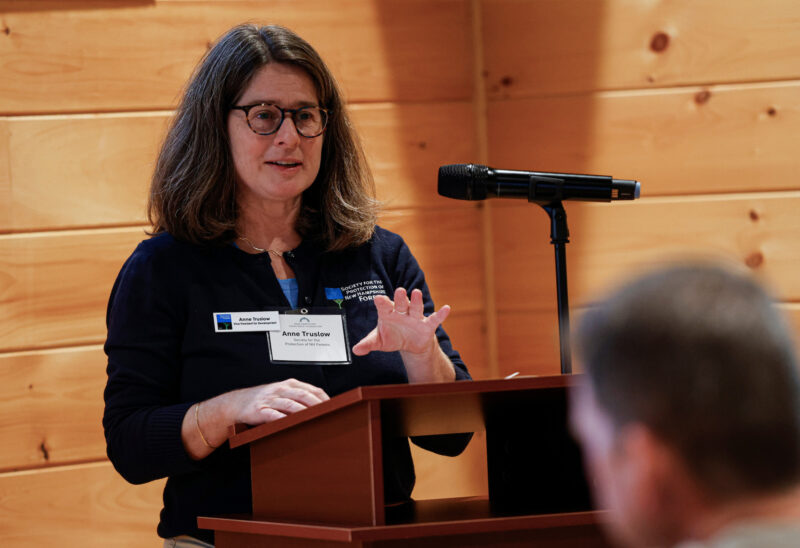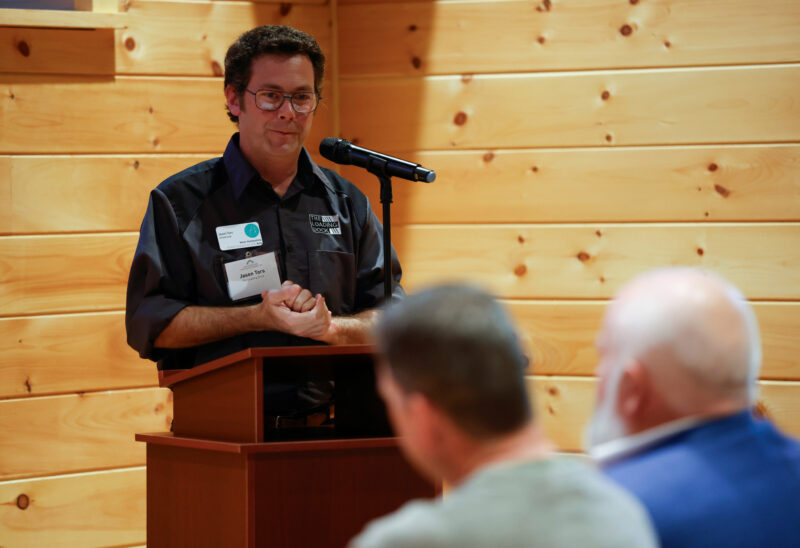Since Elizabeth Cannon began teaching in 2001, amazing research has expanded what we know about how children learn to read.
As a Reading Specialist at Harold Martin Elementary School in Hopkinton for the last 12 years, Cannon has been excited to see first-hand how new approaches help students. Now she has the opportunity to share new science behind reading instruction to help improve early literacy for students throughout New Hampshire.
As recipient of the 2022 Christa McAuliffe Sabbatical from the New Hampshire Charitable Foundation, Cannon will devote the next school year to building on her own knowledge, sharing new research and resources, exploring how to incorporate them in lessons and working with teachers to build a statewide network to support each other in their crucial task of teaching young children how to read.
The sabbatical, created in 1986 in honor of the Concord High School teacher and astronaut, gives an exemplary New Hampshire teacher a year off with pay and a materials budget to bring a great educational idea to fruition.
“Early literacy is the most pressing issue in education today,” Cannon said. “Without adequate literacy skills, your likelihood of poverty, your likelihood of ending up in prison increase. You can’t start building all of the other blocks of learning until literacy is there.”
Among the new findings Cannon cited are brain scans called Functional MRI, or fMRI, that produce detailed images essentially enabling researchers to read someone’s mind as they read or process sounds associated with words or letters.
“They can understand what parts of the brain light up and are working when children are processing different parts of language,” Cannon said. “It helps you understand the process and better understand instructional strategies that will help children who are struggling.”
Important findings, for instance, shift instruction from first teaching children to identify letters and then matching them to the sounds they make to first identifying the sounds, then matching them to the appropriate letters – the opposite of how many of today’s adults learned to read.
Based on a child’s ability to process sounds, called Phonological Awareness, some teaching techniques can identify children who may have dyslexia or potential language-based learning disabilities even before they begin to read. Adjusting literacy techniques in the early grades can help prevent significant learning challenges later.
“A lot of what I want to do is to bring those ideas to teachers so they can incorporate them into their every day teaching, even with small activities,” she said. “We are not talking about scrapping everything we’ve ever done and starting all over again. We are talking about shifting the balance to incorporate some new things that we know are research-based and can make a big impact on our students.”
Cannon’s work is based on the Science of Reading, which describes worldwide research in a variety of fields including developmental and educational psychology and cognitive neuroscience.
“The Science of Reading has provided research about how children learn to read, from the earliest pieces of spoken language to decoding new words when reading,” Cannon said.
Supported by the research, she said educators now can develop and use new techniques for teaching foundational literacy skills.
“My goal is to create structures to enable educators to better understand how reading develops, why many of our students have difficulties and what we can do to prevent reading failure for our students,” Cannon said.
Her “passion project” is entitled “Reconstructing Reading Instruction: Building Structures to Increase Performance in Early Literacy.” She describes it in three stages, or trimesters:
- First, expand her own knowledge through research, workshops, interviewing experts, surveying New Hampshire schools to learn about their programs and connecting with universities to see what future teachers are being taught.
- Second, organize the information so it can be shared easily with teachers statewide through a YouTube channel, website and printed material.
- Third, visit and work with teachers in every county to share best practices and support developing effective teaching methods that can be implemented immediately for all kindergarten through third-grade children.
“This time will be spent not just educating teachers about the ‘why,’ or the theory behind new research-based practices, but also working collaboratively with them to support the ‘how’ of putting that research into practical use in the classroom,” Cannon said.
She also plans to explore re-establishing a New Hampshire chapter of the International Literacy Association to build a supportive network of the state’s literacy educators. She envisions that network helping to ensure that teachers in different districts can learn from one another and avoid duplicating efforts.
“We don’t necessarily have systems to connect with each other in New Hampshire,” Cannon said. “Nobody is centralizing and collaborating to share information about early literacy. Sharing our knowledge and ideas with others in the field will help our state increase performance by consolidating and streamlining professional expertise and experience that already exists right here in New Hampshire.”
New Hampshire fourth graders are ninth in the nation for reading proficiency, but there is much room for improvement. Ranking ninth in 2019, the latest year robust statewide data is available, means 38 percent of the state’s fourth graders are at or above proficient reading levels as measured by NAEP, The National Assessment of Education Progress. The national average is 35 percent.
And there are achievement disparities across New Hampshire. The American Institutes for Research analyzed ten years’ of New Hampshire data and produced a report for the state’s Commission to Study School Funding. Among the findings: In New Hampshire, “The highest poverty school districts have the lowest student outcomes. The negative relationship between poverty and outcomes is very strong.”
Cannon said being open to a new approach to reading literacy is the right thing to do at any time. But her project comes at an opportune time as schools in New Hampshire and around the country work to help children who fell behind when the Covid pandemic disrupted education.
A state report released in December showed that proficiency scores dropped from 2019 to 2021 in reading, math and science, but for several reasons – including continuing remote learning in some schools and parents opting their children out of state testing – the figures drew on a significantly smaller number of students than previous statewide tests. There was no similar testing in 2020 because school buildings were closed.
Cannon said educators are waiting for the results of testing this year to grasp a more accurate assessment. But, based on her own experience, she saw a learning gap for young readers.
“What we have seen is that our youngest learners, kindergarten and grade 1, took the hardest hit,” she said.
Research by the Annie E. Casey Foundation documented that students who do not read proficiently by the end of third grade are four times more likely to drop out of school. The research also found that 88 percent of students who do drop out of high school struggled to read in third grade.
Cannon cited multiple studies in her McAuliffe Sabbatical application that point to life-long ramifications: 43 percent of adults with the lowest levels of literacy proficiency live in poverty; 60 percent of America’s prison inmates are illiterate; 85 percent of juvenile offenders have reading problems.
“It’s just heartbreaking to see what will happen to kids who don’t get what they need in those early years,” she said.
Teachers understand the lasting importance of early childhood reading instruction. But Cannon said many are so busy keeping up with demanding teaching duties that they might not have the time to actively research new approaches or be aware of them.
Cannon said she looks forward to collaborating with teachers around the state because they all have the same goal.
“Teachers love their kids,” she said. “Teachers want nothing more than for their kids to succeed.”
Receiving the McAuliffe Sabbatical is special for Cannon – professionally and personally. Her family and the McAuliffes attended the same church in Concord and McAuliffe taught Sunday School for Cannon’s older siblings.
“To have known her personally makes the honor that much more amazing,” she said.



















